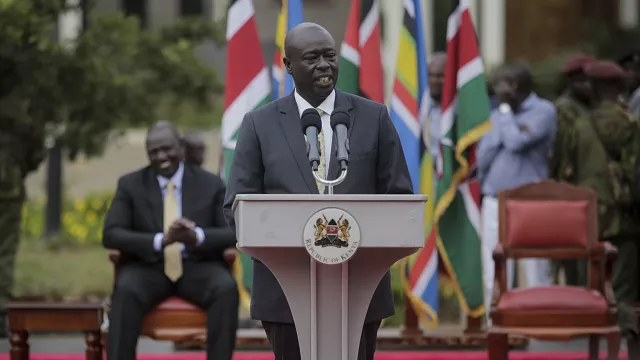Kenya’s National Assembly backs impeachment of VP Gachagua
On the night of October 8, 281 Kenyan MPs voted to impeach Rigathi Gachagua, who has served as the country’s Vice President since William Ruto’s election in 2022.
In contrast, 44 MPs opposed the impeachment, and 1 abstained. Following the announcement of the results, scenes of celebration erupted among supporters of the motion.
Gachagua faced allegations of supporting historic anti-government protests in June, as well as accusations of corruption and other irregularities. He defended his actions during a televised address and in Parliament.
According to Article 145(2A) of the Constitution, if a motion receives at least two-thirds support from the National Assembly, the Speaker must notify the Senate within two days, as stated by Speaker Moses Wetang’ula. If the Senate endorses the motion, Gachagua would become the first deputy president to be impeached since the new constitution was enacted in 2010.
Chapter 9 of the Constitution outlines two scenarios for the Deputy President’s removal:
(a) physical or mental incapacity to fulfill official duties, or (b) impeachment.
Impeachment can occur on three grounds:
(i) gross violation of the Constitution or any law; (ii) serious reasons to believe the Deputy President has committed a crime under national or international law; or (iii) gross misconduct.
In his defense on October 7, Gachagua claimed that some properties listed in the impeachment motion actually belonged to his late brother. He also justified expenses for renovating his official residence, stating it was in disrepair and needed to be restored to a dignified state.
Speculation about Gachagua’s fallout with President William Ruto had circulated for months, revealing tensions between the two. During unprecedented protests, many Kenyans called for Ruto to resign.






















































